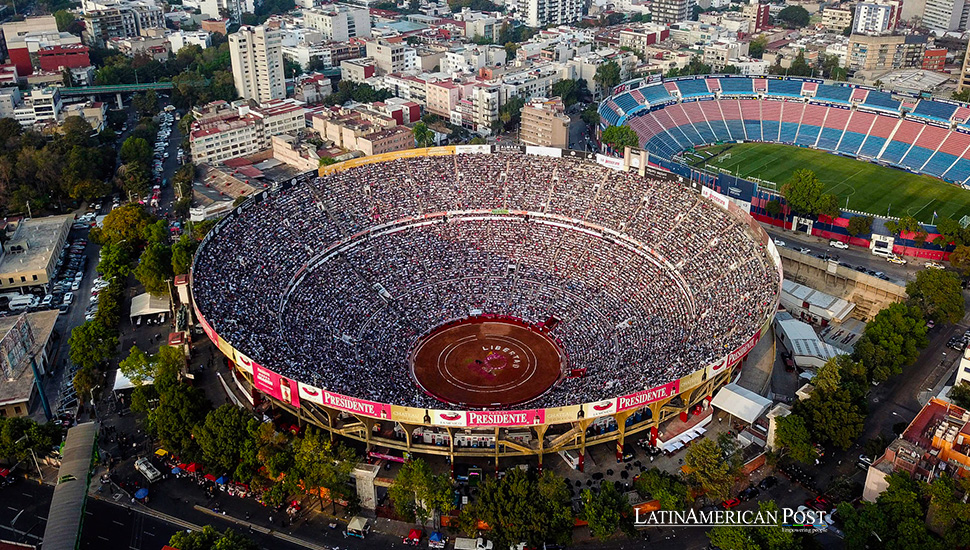Mexico City’s Bullfighting Ban: A Legal and Cultural Battle Unfolds

A federal court’s temporary injunction against Mexico City bullfighting marks the latest chapter in an intense legal and ethical debate. The ban, halting bullfights scheduled for early February, reignites controversies around animal rights and cultural tradition. This development follows a recent Supreme Court decision and reflects the growing influence of animal welfare activism in Mexico.
Legal Clash Over Bullfighting in Mexico City
In the heart of Mexico City, a legal drama unfolds that pits tradition against modern sensibilities. The federal court’s recent decision to place a temporary injunction on Bullfighting has thrust this controversial practice into the spotlight, drawing sharp lines between cultural aficionados and animal rights activists.
After a nearly two-year hiatus, Bullfighting, a spectacle deeply ingrained in Mexican culture, had just resumed at Plaza Mexico, the capital’s main bullring. The return of this ancient sport was short-lived, as the court’s ruling mandates a postponement of events scheduled for February 4-6, leaving organizers uncertain.
The journey to this injunction began in May 2022, when a local court deemed Bullfighting in violation of residents’ rights to a violence-free, healthy environment. Though the Supreme Court later overturned this ruling on technical grounds, it did not address the fundamental ethical questions at the heart of the debate. This void allowed animal rights supporters to mount a new legal challenge, culminating in the recent suspension of the bullfights until February 7, when a further hearing is set.
The forthcoming hearing is not just about the legality of Bullfighting; it’s a deeper examination of the ethical implications of the practice. Activists argue that Bullfighting subjects animals to cruelty and presents a spectacle that is degrading and insensitive to environmental concerns. These arguments resonate in a world increasingly aware of animal rights and environmental protection.
Shifting Tides: Animal Rights Movement in Mexico
In recent years, animal rights groups have gained significant traction in Mexico. Their efforts have led to judicial measures limiting Bullfighting in several states, including Sinaloa, Guerrero, Coahuila, Quintana Roo, and the western city of Guadalajara. This shift reflects a broader societal movement towards greater empathy for animal welfare and a reevaluation of traditional practices in light of contemporary ethical standards.
However, the push to ban Bullfighting has met with staunch opposition from those who view the sport as an integral part of Mexican heritage. Ranchers, businessmen, and bullfighting enthusiasts argue that such bans infringe upon their rights and threaten thousands of jobs linked to the industry. They assert that Bullfighting generates approximately $400 million annually in Mexico, underlining its economic significance.
Economic Impact: Jobs at Stake
The National Association of Fighting Bull Breeders in Mexico emphasizes the industry’s role in the economy, citing responsibility for 80,000 direct and 146,000 indirect jobs. In response to the growing opposition, the association has ramped up efforts to promote bullfights, hosting events and workshops to cultivate a new generation of fans.
This legal and cultural battle over Bullfighting in Mexico City symbolizes a global conversation about the intersection of tradition, animal rights, and economic interests. On one side, proponents of Bullfighting see it as an art form, a celebration of bravery and skill deeply rooted in history. On the other, opponents view it as an outdated and cruel practice, out of step with modern values of compassion and respect for animal life.
The debate over Bullfighting transcends legal arguments, tapping into broader questions about cultural identity and change. For many Mexicans, Bullfighting is not merely a sport; it’s a cultural artifact, a living link to a storied past. It represents a continuum of history and tradition, expressing a national identity steeped in ritual and spectacle.
Yet, as society evolves, so too does its collective conscience. The growing awareness of animal rights and the ethical treatment of animals has led many to question practices once accepted as normative. This shift is not unique to Mexico; it reflects a global reassessment of human-animal relationships and the ethical responsibilities that come with it.
In the case of Bullfighting, this reassessment is particularly complex. The sport is not merely entertainment; it’s interwoven with cultural, economic, and social threads. The challenge, therefore, is to balance respect for cultural heritage with evolving ethical standards and the welfare of animals.
Economic Stability vs. Animal Rights
The economic arguments for Bullfighting also present a significant aspect of the debate. Thousands of families depend on the bullfighting industry for their livelihoods. The potential ban threatens their economic stability, raising questions about reconciling animal rights with human economic needs.
The upcoming hearing on February 7 is more than just a legal proceeding; it’s a crucible in which these competing values and interests will be tested. Whatever the outcome, it’s clear that the issue of Bullfighting in Mexico City – and indeed in Mexico at large – is far from settled. It remains a contentious and emotive subject, a litmus test for how traditional practices can adapt to changing societal norms.
The temporary injunction against Bullfighting in Mexico City is pivotal in this ongoing debate. It reflects a society grappling with the complexities of preserving its cultural heritage while embracing modern values of compassion and ethical responsibility. As Mexico continues to navigate this delicate balance, the world watches, recognizing the broader implications of this struggle in the context of global efforts to protect animal rights and redefine cultural practices in an increasingly ethical world.
Also read: Puerto Rican Carlos Correa’s Baseball Comeback
The battle over Bullfighting in Mexico City is a microcosm of a larger global conversation about tradition, modernity, and ethics. It’s a story that encapsulates the tensions between preserving cultural legacies and progressing towards a more compassionate and ethical society. As this story unfolds, it will undoubtedly provide insights and lessons for other cultures and societies facing similar challenges in reconciling their past with the present demands.





